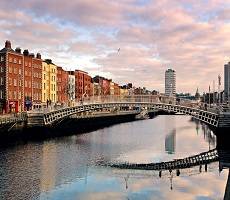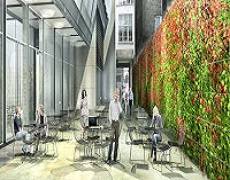July 1, 2014
First female President in RICS’ history will focus on diversity
 The Royal Institution of Chartered Surveyors (RICS) has confirmed the first female President in the Institution’s 146 year history. New President of RICS Louise Brooke-Smith will give her inaugural speech today (1 July) during RICS’ Governing Council meeting in London. Alongside her presidency of RICS, Brooke-Smith will continue to be involved with the Birmingham based planning and development consultancy, Brooke Smith Planning. RICS accredits over 118,000 qualified professionals across the globe in land, real estate, construction and infrastructure. She succeeds outgoing RICS President, Michael Newey and during her year-long presidency, will focus on three core areas; diversity, Africa and her professional specialisms, planning and land economics. Commenting on her diversity plans for the year Louise Brooke-Smith, RICS President said: “Chartered Surveying is a globally recognised profession, and we must ensure that it is open to all, whatever their background, or gender. (more…)
The Royal Institution of Chartered Surveyors (RICS) has confirmed the first female President in the Institution’s 146 year history. New President of RICS Louise Brooke-Smith will give her inaugural speech today (1 July) during RICS’ Governing Council meeting in London. Alongside her presidency of RICS, Brooke-Smith will continue to be involved with the Birmingham based planning and development consultancy, Brooke Smith Planning. RICS accredits over 118,000 qualified professionals across the globe in land, real estate, construction and infrastructure. She succeeds outgoing RICS President, Michael Newey and during her year-long presidency, will focus on three core areas; diversity, Africa and her professional specialisms, planning and land economics. Commenting on her diversity plans for the year Louise Brooke-Smith, RICS President said: “Chartered Surveying is a globally recognised profession, and we must ensure that it is open to all, whatever their background, or gender. (more…)
























June 24, 2014
Five things we have learned about flexible working ahead of the new right to ask regs
by Mark Eltringham • Comment, Flexible working, Technology, Workplace, Workplace design
(more…)